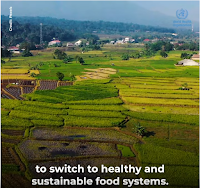(Pics by this blog)
 "Rising consumption by the affluent has a far greater environmental impact than the birth rate in poorer nations
"Rising consumption by the affluent has a far greater environmental impact than the birth rate in poorer nations
When a major study was published last month, showing that the global population is likely to peak then crash much sooner than most scientists had assumed, I naively imagined that people in rich nations would at last stop blaming all the world’s environmental problems on population growth. I was wrong. If anything, it appears to have got worse.
 Next week the BirthStrike movement
– founded by women who, by announcing their decision not to have
children, seek to focus our minds on the horror of environmental
collapse – will dissolve itself,
because its cause has been hijacked so virulently and persistently by
population obsessives. The founders explain that they had
“underestimated the power of ‘overpopulation’ as a growing form of
climate breakdown denial”.
Next week the BirthStrike movement
– founded by women who, by announcing their decision not to have
children, seek to focus our minds on the horror of environmental
collapse – will dissolve itself,
because its cause has been hijacked so virulently and persistently by
population obsessives. The founders explain that they had
“underestimated the power of ‘overpopulation’ as a growing form of
climate breakdown denial”.
 It
is true that, in some parts of the world, population growth is a major
driver of particular kinds of ecological damage, such as the expansion
of small-scale agriculture into rainforests, the bushmeat trade and
local pressure on water and land for housing. But its global impact is
much smaller than many people claim.
It
is true that, in some parts of the world, population growth is a major
driver of particular kinds of ecological damage, such as the expansion
of small-scale agriculture into rainforests, the bushmeat trade and
local pressure on water and land for housing. But its global impact is
much smaller than many people claim.
 The formula for calculating people’s environmental footprint is
simple, but widely misunderstood: Impact = Population x Affluence x
Technology (I = PAT). The global rate of consumption growth, before the
pandemic, was 3% a year. Population growth is 1%. Some people assume
this means that the rise in population bears one-third of the
responsibility for increased consumption. But population growth is
overwhelmingly concentrated among the world’s poorest people, who have scarcely any A or T
to multiply their P. The extra resource use and greenhouse gas
emissions caused by a rising human population are a tiny fraction of the
impact of consumption growth."
The formula for calculating people’s environmental footprint is
simple, but widely misunderstood: Impact = Population x Affluence x
Technology (I = PAT). The global rate of consumption growth, before the
pandemic, was 3% a year. Population growth is 1%. Some people assume
this means that the rise in population bears one-third of the
responsibility for increased consumption. But population growth is
overwhelmingly concentrated among the world’s poorest people, who have scarcely any A or T
to multiply their P. The extra resource use and greenhouse gas
emissions caused by a rising human population are a tiny fraction of the
impact of consumption growth."
Go to the revealing, complete article by George Monbiot in The Guardian
Related: Far-reaching climate change risks to Australia must be reduced and managed: Aigroup
overpopulation, affluence, technology, #climatechange, #cambio-climatico, #foodsecurity, #criminalesclimáticosdelacárcel, #人类灭绝,
 "Rising consumption by the affluent has a far greater environmental impact than the birth rate in poorer nations
"Rising consumption by the affluent has a far greater environmental impact than the birth rate in poorer nationsWhen a major study was published last month, showing that the global population is likely to peak then crash much sooner than most scientists had assumed, I naively imagined that people in rich nations would at last stop blaming all the world’s environmental problems on population growth. I was wrong. If anything, it appears to have got worse.
 Next week the BirthStrike movement
– founded by women who, by announcing their decision not to have
children, seek to focus our minds on the horror of environmental
collapse – will dissolve itself,
because its cause has been hijacked so virulently and persistently by
population obsessives. The founders explain that they had
“underestimated the power of ‘overpopulation’ as a growing form of
climate breakdown denial”.
Next week the BirthStrike movement
– founded by women who, by announcing their decision not to have
children, seek to focus our minds on the horror of environmental
collapse – will dissolve itself,
because its cause has been hijacked so virulently and persistently by
population obsessives. The founders explain that they had
“underestimated the power of ‘overpopulation’ as a growing form of
climate breakdown denial”. It
is true that, in some parts of the world, population growth is a major
driver of particular kinds of ecological damage, such as the expansion
of small-scale agriculture into rainforests, the bushmeat trade and
local pressure on water and land for housing. But its global impact is
much smaller than many people claim.
It
is true that, in some parts of the world, population growth is a major
driver of particular kinds of ecological damage, such as the expansion
of small-scale agriculture into rainforests, the bushmeat trade and
local pressure on water and land for housing. But its global impact is
much smaller than many people claim. The formula for calculating people’s environmental footprint is
simple, but widely misunderstood: Impact = Population x Affluence x
Technology (I = PAT). The global rate of consumption growth, before the
pandemic, was 3% a year. Population growth is 1%. Some people assume
this means that the rise in population bears one-third of the
responsibility for increased consumption. But population growth is
overwhelmingly concentrated among the world’s poorest people, who have scarcely any A or T
to multiply their P. The extra resource use and greenhouse gas
emissions caused by a rising human population are a tiny fraction of the
impact of consumption growth."
The formula for calculating people’s environmental footprint is
simple, but widely misunderstood: Impact = Population x Affluence x
Technology (I = PAT). The global rate of consumption growth, before the
pandemic, was 3% a year. Population growth is 1%. Some people assume
this means that the rise in population bears one-third of the
responsibility for increased consumption. But population growth is
overwhelmingly concentrated among the world’s poorest people, who have scarcely any A or T
to multiply their P. The extra resource use and greenhouse gas
emissions caused by a rising human population are a tiny fraction of the
impact of consumption growth."Go to the revealing, complete article by George Monbiot in The Guardian
Related: Far-reaching climate change risks to Australia must be reduced and managed: Aigroup
overpopulation, affluence, technology, #climatechange, #cambio-climatico, #foodsecurity, #criminalesclimáticosdelacárcel, #人类灭绝,
































